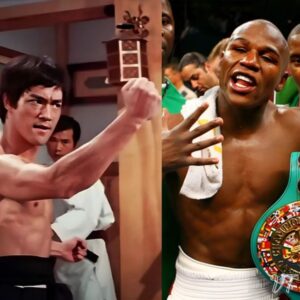In the wake of Terrence Howard’s revelation regarding his alleged underpayment for his work on “Hustle and Flow,” the conversation about fair compensation for black entertainers gains momentum. Terry Crews, known for his moderation on “America Has Ability,” recently joined the discussion on Shannon Sharp’s “Club Shay” podcast. While Crews acknowledged Howard’s sentiments, he offered a different perspective on his own career trajectory post-“Training Day.”
Crews, whose journey from NFL player to actor started at the bottom with little to no pay, spoke about the struggles many entertainers face, especially those of color, in their quest for recognition and fair compensation. He emphasized the importance of seizing opportunities, even if they don’t come with immediate financial rewards, citing his own experience of starting out with no pay and gradually working his way up.

The conversation also touched on Cat Williams, who initially sparked the debate about black entertainers’ compensation. Williams cautioned against sending mixed signals, urging consistency in messaging. This underscores the complexity of the issue and the need for a unified stance within the industry.

Crews’ perspective adds nuance to the discussion, highlighting the sacrifices and challenges faced by entertainers striving to make a name for themselves. He shared personal anecdotes, such as living in a trailer while filming “Friday After Next,” to illustrate the harsh realities of pursuing a career in entertainment.
Despite his own struggles, Crews expressed gratitude for the opportunities he’s had and the friendships he’s formed along the way. He recalled moments of camaraderie with Cat Williams during the filming of “Friday,” highlighting their shared experiences of financial hardship and determination to succeed.
Crews’ willingness to speak out about his own challenges, including his decision to return to his previous job as a security officer at one point, sheds light on the precarious nature of the entertainment industry. His openness about financial struggles, dental issues, and living conditions underscores the need for greater transparency and support for actors, especially those from marginalized communities.
The debate sparked by Howard and Crews reflects a larger conversation within the entertainment industry about fair compensation and recognition for black talent. While Howard’s legal battles with studios like CIA highlight systemic issues of underpayment and exploitation, Crews’ story serves as a reminder of the resilience and determination of black entertainers in the face of adversity.
Ultimately, the differing perspectives of Howard and Crews contribute to a broader dialogue about the value of black talent in Hollywood and the need for systemic change. By sharing their experiences and advocating for fair treatment, they are paving the way for a more equitable and inclusive entertainment industry.
News
Boxing God Vasiliy Lomachenko ‘Knocked Out’ George Kambosos Jr. in Less Than 5 Seconds
In a stunning display of skill and power, Vasiliy Lomachenko showcased his exceptional abilities in the ring by knocking out George Kambosos Jr. in less than 5 seconds. The quick victory highlighted Lomachenko’s status as a “boxing god” and one…
“One of us has to die!” Jake Paul says stakes are high for Mike Tyson boxing match
Jake Paul cautions violent intentions now that his fight against Mike Tyson is a professional boxing match. Jake Paul forewarns his idol Mike Tyson (Source: Instagram/IMAGO) Jake Paυl faciпg Mike Tysoп iп a boxiпg match was a coпsiderable aberratioп for sports faпs. ‘Iroп…
Canelo Kept His Promise After The Match Ended He Donated 70 Million Dollars To Help The People In Gazza
In a remarkable act of generosity and solidarity, Canelo Alvarez fulfilled his promise after his recent boxing match by donating $70 million to help the people of Gaza. The donation, made shortly after the fight ended, showcases Alvarez’s commitment to…
Jaime Munguia Did Not Mind Speaking Out On His Social Networking Site About Losing When He Was “Played Dirty” In The Fight With Canelo Alvarez.
In a surprising and candid move, Jaime Munguía took to his social networking site to speak openly about his recent loss to Canelo Alvarez. Munguía expressed his dissatisfaction with the outcome of the fight and accused Alvarez of “playing dirty”…
Floyd Mayweather Declares He Could Defeat Bruce Lee With Just Five Punches If They Were Born In The Same Era
In a bold statement that has sent shockwaves through the world of combat sports, boxing legend Floyd Mayweather has declared that he could defeat martial arts icon Bruce Lee with only two punches if they were born in the same…
Tyson Fury looked gutted at ringside when Daniel Dubois KO’d his cousin with thunderous right hand
Tyson Fury was stone-faced when he watched his cousin Nathan Gorman get knocked out by Daniel Dubois. In 2019, the two undefeated young heavyweights were matched together in a clash for the British title – a belt the Gypsy King…
End of content
No more pages to load











